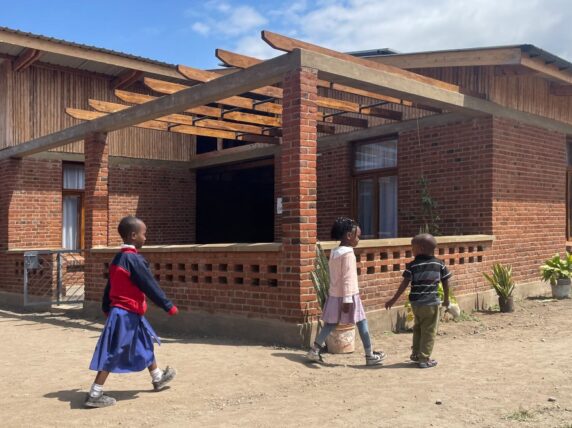What enables development consortia to adapt to changing circumstances?
UK Aid Connect is supporting consortia comprised of diverse organisations to create innovative solutions to complex development challenges that deliver real change to the lives of the most vulnerable people around the world.
These consortia often operate in dynamic contexts caused by political instability, conflict, or natural disasters. More recently, they have had to respond to funding challenges and Covid-19. Therefore, in addition to innovating, they must also be able to adapt to changing circumstances to ensure progress, maintain relevance, and deliver impact.
In a previous blog, we explored the different ways UK Aid Connect consortia have adapted in response to Covid-19. As part of an ongoing Learning from Consortia programme, we initiated a deeper dive to understand what enabled the consortia to successfully adapt to the changing circumstances. Here are eight things we’ve learnt:
1. Diverse range of partners
Several UK Aid Connect consortia highlighted the value a diverse range of partners can bring to responding rapidly and creatively to changing circumstances. Partners contribute through different combinations of skills, experience, knowledge, and resources.
This can include, for example, combinations of sector knowledge, in-country expertise, experience using different methods and approaches, and technology solutions. However, partner diversity alone does not necessarily enable successful adaptation. The culture and ways of working among partners are also important to consider.
2. Ethos of collaboration
Establishing a collaborative culture and way of working can help consortia effectively leverage the capability of partners to respond rapidly and creatively to changing circumstances. For example, due to Covid-19, the ACCESS consortium pivoted an in-person co-creation activity to being fully online, which had challenges but also several unexpected benefits. Their ability to successfully adapt was due to strong partner collaboration, which was developed in the early stages of their consortium.
The co-creation phase included consortium-wide workshops during which all partners worked together to define outputs and ways of working, which has become known as “the ACCESS way”. In addition, all outputs are worked on in collaboration between multiple partners, as opposed to assigning packages of work to each individual partner.
3. Culture of learning and openness
Some consortia highlighted the importance of having a culture of learning and of questioning what needs to change based on what is being learned. This is particularly important in the face of changing circumstances where existing assumptions, approaches, and solutions may no longer apply in the same way.
Subscribe to our newsletter
Our weekly email newsletter, Network News, is an indispensable weekly digest of the latest updates on funding, jobs, resources, news and learning opportunities in the international development sector.
Get Network NewsFor consortia like The Development Alternative, a culture of learning has been established through a structured “test-learn-adapt” approach. The Development Alternative programme was designed to be adaptive in response to the feedback of young people and community members. The programme design includes regular structured sessions to review what is working well and what the challenges are, as well as identifying potential adaptations, which include those proposed by youth community members.
4. Strong communication and trust among consortium members
Collaboration and learning, along with challenging existing assumptions, approaches, and solutions is made possible by strong communication and trust among consortium partners. Communication and trust are therefore key enablers to rapid and creative adaptation to changing circumstances.
Inclusion Works responded to Covid-19 by prioritising planned activities and pivoting training to online. Their ability to rapidly adapt was enabled due to strong communication and trust that already existed between partners before the UK Aid Connect consortium was formed. As Simon Brown from Sightsavers explains:
With that group [of partners] already together, you already start to build some trust, some relationships that allow you to move forward. That was really important in terms of rapidly adapting and reprioritising work… As a consortium you’ve got to invest time in building trust.
Simon Brown
5. Flexibility built into programme design
Programme design with adaptability and flexibility built in allows for more rapid adaptation when circumstances change. For example, for Smart Peace, the high degree of flexibility built into their programme design enabled them to think broadly and creatively about how to adapt to Covid-19.
Their adaptations included research on the impact of Covid-19 on partner communities, community awareness building, provision of hygiene kits, development of partnerships between local leaders and the hospital, and convening diverse stakeholders in conflict zones to discuss Covid-19 prevention and responses. They also adapted some in-person activities to include new protocols and pivoted others to online.
6. Experience dealing with crises and rapidly changing external environments
For some consortia, prior experience with changing contexts facilitated adaptation in response to Covid-19. For example, The Civil Society Collective found that existing “muscle memory” from working on previous crises and rapidly changing external environments, enabled them to pivot into sector support during Covid-19.
7. Access to capabilities and resources
Several of the consortia adapted in response to Covid-19 by implementing impact and needs assessments to understand changing realities of their target communities, as well as by implementing ongoing context and rumour tracking. Many also pivoted to remote or online mediums for information dissemination, data collection, and other activities such as training and workshops. Some consortia highlighted access to capabilities and resources as enablers of these adaptations, including existing relationships, digital infrastructure, and digital literacy.
8. Good relationships with and support from donor organisations
Finally, some consortia noted that good relationships with donor organisations and their support for flexible and adaptive approaches enabled them to pivot in response to Covid-19 to ensure progress, maintain relevance, and deliver impact, in some cases in completely new ways.
As part of our ongoing efforts to learn from the experiences of the UK Aid Connect consortia and share good practices, we will continue our deep dive into enablers and challenges associated with adaptation, as well as innovation. A summary of our learning thus far on Covid-19 adaptations, including challenges and benefits, and the underlying enablers is available as an infographic. You can also learn more about how consortia are innovating and adapting through case studies of ACCESS and Inclusion Works.
The Learning from Consortia programme is led by Bond and The Partnering Initiative to share learning and find innovative solutions to complex development challenges.
Category
News & Views



